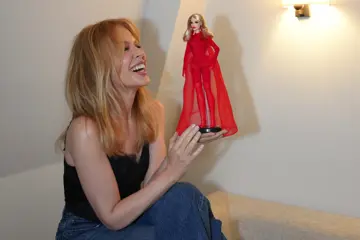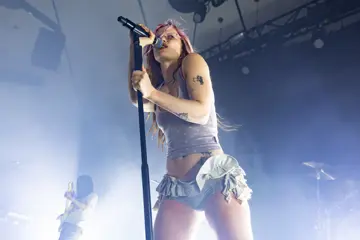With rampant technological advancements continuing unabated, the music industry has undergone seismic change over the last decade or so in regard to how people discover and devour music, with the role of the A&R person by necessity evolving at a similar pace.
On a basic level, the A&R role still carries the same basic obligation — to sign and nurture acts who are the right fit for the record label or publishing company in question — but how this now happens has changed dramatically. Late nights in dimly-lit venues, demo tapes and word of mouth recommendations are still part of an A&R rep's armoury but no longer considered the be-all and end-all.
"In the course of five or six years, I've certainly seen it shift more towards playlist orientation on streaming services," offers Carlos Lopez Jr, currently A&R Manager for Domino Publishing Company, based in their Brooklyn office. "Obviously because of that, release schedules have shifted, whether it be label-wise or even publishing-wise, that's been affected. It's certainly been fascinating to see.
"I'm stubborn in a way that I very much still go with my gut with regards to newer writers and producers and even artist projects. Unfortunately that's why we sometimes lose things because they move so quickly, but of course, we get things sometimes because of our ethos and values here at Domino.
Don't miss a beat with our FREE daily newsletter
"So it's certainly shifted in a lot of ways, and I think a lot of them happen to be data-driven with Apple, Spotify and Tidal. So a lot of it is streaming, and to be honest with you, the advent of streaming has certainly affected the more data-research A&Rs, who are more keen to kind of shape their roster based on a good radio play single.
"But in the short span of my career in A&R, that's kind of been the overarching conversation and elephant in the room. The one thing culturally that's been nice was when I entered the music industry, the prevailing sentiment was, 'The ceiling is falling and everything's done and we're all going to be out of jobs soon!' but once streaming was kind of appreciated and harnessed — in some kind of capacity, I should say — that's when the optimism returned."
Lopez — whose US roster for Domino currently includes artists the calibre of Arctic Monkeys, Franz Ferdinand, Cat Power, Hot Chip, Franz Ferdinand, Blood Orange and our own Middle Kids, to name but a few — believes that despite offering little in the way of direct monetisation, streaming can be hugely beneficial to artists.
"I think you can use streaming for a platform to elevate your songs and project," he reflects. "A lot of the bedroom pop happening like Cuco and Boy Pablo is because of YouTube, and in a way, they've been able to elevate their projects because of streaming — I wouldn't say it was directly related to the monetisation of the streaming services, but merely because of the exposure, whether it just be playlisting or continuous algorithm-based exposure on YouTube."
Having cut her teeth in A&R and digital marketing at Anti- Records, Amber Carew recently became the first-ever A&R rep for Saddle Creek — the indie label which sprung up in Omaha, Nebraska around a rich local scene featuring bands like Bright Eyes, Cursive and The Faint — and she explains that these days, she's just as likely to be found behind a computer screen as at a bar or venue.
"It's probably about the same amount of time," she laughs. "I go to about five shows a week: I'm always out which can be difficult, but I'm 29 so it's still relatively easy for me to do that. I grew up in venues working the door and it's sort of where I feel most at home, but it's still difficult — and I try to explain this to people all the time — because it is the one job in music where you kind of have to be both people.
"A&R is definitely not as glamorous as people assume, especially when you're one at a small indie label: you have to be on the computer from 9am to 6pm and you have a lot of work to do. I've worked with bands who are starting out and don't have managers and don't have agents, and half of my job is finding those people for them, and that involves a lot of emailing and pitching — sometimes I feel like their publicist!
"It's a lot of computer work, and that's not even considering all of the demo listening. When I'm at the office I might put on demos while I'm doing 'busy work', but really the majority of my intentional listening through my demo inbox, I do it outside of the office because I can focus better when I'm at home on my bed staring at the ceiling. That's when my best intentional listening happens, so that takes up the time between when I leave the office and when I'm ready to go to a show, and then I'm at a show and then I wake up and I'm back to the office. I don't think a work/life balance is necessary too much at this point in life, but I have time to figure that out.
"But yeah, I'm on my computer way more than I wish I had to be, but that's also because I have an 'open door policy' — I put my email online and allow anyone to send me anything. I don't think that's very typical of A&R — I think there's an ego a lot of the time where people are very insular and close themselves off — but for me, it's important that kids in their bedroom can send me their music.
"I will listen to that before I listen to something that an industry person sent me, because that's just where I'm from — I'm from a New Orleans community where industry takes a back seat to artistry, and I want to listen to the musicians more so than the noise that comes from the industry. But I spend equal time at the computer as I do at venues — it's my entire life."















